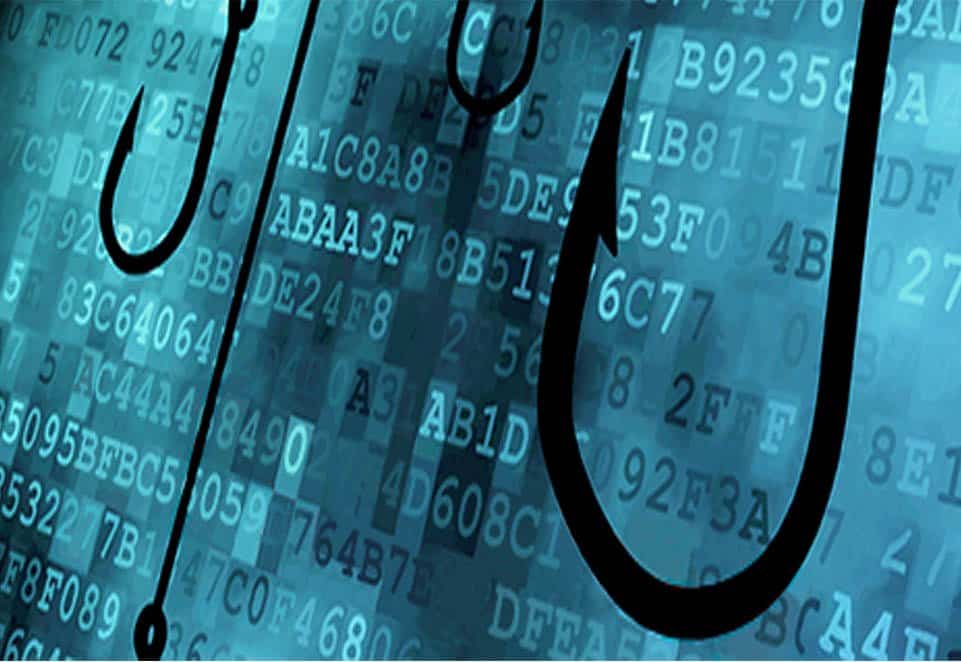Following a string of high-profile incidents that began earlier this year, the healthcare industry has been highly focused on preventing ransomware attacks. IoT security has also emerged as a growing concern. However, healthcare organizations (as well as businesses in other industries) cannot afford to ignore another growing threat: spear phishing.
Like regular phishing, spear phishing involves sending legitimate-looking but fraudulent emails asking users to provide sensitive information and/or initiate wire transfers. However, while regular phishing emails are sent out en masse to the general public, spear phishing emails are highly targeted and sent to specific, predetermined victims, usually a small group of people working at a specific company.
In a recent press release, the Federal Bureau of Investigation warned of a dramatic rise in a type of spear phishing known as a “CEO email scam” or a “business email compromise scam.” According to the FBI, from October 2013 to February 2016, law enforcement identified 17,642 victims, totaling $2.3 billion in losses. Since January 2015, reports of spear phishing have increased by 270%.

Main Line Health Attack Proves that Employee Data Is at Risk
In February 2016, while everyone’s attention was focused on the Hollywood Presbyterian ransomware attack, Main Line Health, which operates four hospitals near Philadelphia, was hit by a spear phishing scheme. Emails were sent to employees, purportedly from the organization’s CEO and CFO, requesting employee payroll and W2 information. While some employees immediately realized the emails were fraudulent and reported them to management, at least one employee was tricked into sending the requested information to the hacker. As a result, Main Line Health had to notify its employees that their personal information may have been compromised and offer them free credit counseling and monitoring services.
When healthcare organizations think about cybersecurity, they usually focus on patient data protection. However, the hackers who compromised Main Line Health were not seeking to infiltrate patient data, but employee data, and the attack may have been connected to a very large spear phishing scheme targeting HR and payroll professionals in various industries nationwide. It is suspected that the hackers running the scheme intended to use the stolen data to file fraudulent tax returns.
How to Protect Against Spear Phishing
Email spam filters can be adjusted to recognize emails from suspicious sources and block them before they reach employees’ inboxes. However, some phishing emails will undoubtedly still get through. The best way to protect against spear phishing is to teach employees how to recognize the telltale signs of a spear phishing email, such as:
- The salutation and/or the closing seem odd. For example, management normally refers to you as “William” or “Mr. Doe,” but the email is addressed to “Bill.” In the case of Main Line Health, the closing is what alerted one employee to the fraud; the email message, which purported to be from the CEO, was signed “John Lynch,” but the employee knew that the company’s CEO goes by “Jack.”
- The request is unusual and/or does not follow normal company protocol. For example, the email is asking for employee W2 information, but requests like this are not normally handled through email or by the employee who received the request, or the person who allegedly sent the email has never requested similar information before, or it’s unusual for the person who allegedly sent the email to directly contact that particular employee.
- The wording and tone of the email are stilted. Many spear phishing attacks are launched by foreign hackers who are not fluent in English; the email may be riddled with punctuation, spelling, or grammar errors, be worded oddly, or use British spelling. The wording may also be overly formal – or overly casual.
- The domain the email was sent from is incorrect. Instead of “yourcompany.com,” the email may have been sent from “yourcompany.com-xyz.com” or some other derivative.
Employees should be taught that if something seems “off” about an email, they should consult a supervisor or IT security personnel before responding to it. Additionally, as part of your organization’s overall cybersecurity plan, a firm protocol should be established regarding requests for sensitive employee and patient data, and employees should be trained not to release sensitive data unless the protocol is followed.
In addition to using email spam filters to intercept suspicious messages, training employees to spot spear phishing emails, and implementing a solid security plan that includes protocol for the release of sensitive data, it’s a good idea for healthcare facilities to enlist the services of a professional cybersecurity firm such as Continuum GRC. The cybersecurity experts at Continuum GRC have deep knowledge of the cybersecurity field, are continually monitoring the latest information security threats, and are committed to protecting your healthcare organization from security breaches. Continuum GRC offers full-service and in-house risk assessment and risk management subscriptions, and we help companies all around the world sustain proactive cybersecurity programs.
Continuum GRC is proactive cybersecurity®. Call 1-888-896-6207 or book some time with us to discuss your organization’s cybersecurity needs and find out how we can help you protect your facility’s employee and patient data.



Related Posts